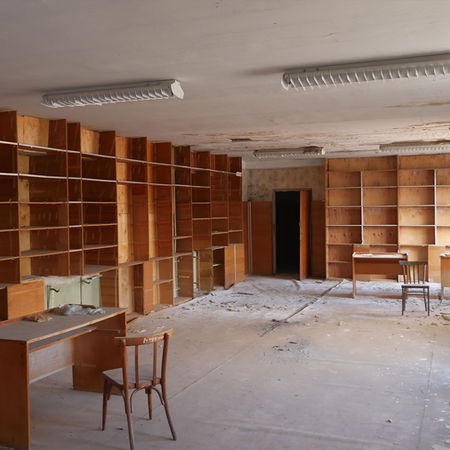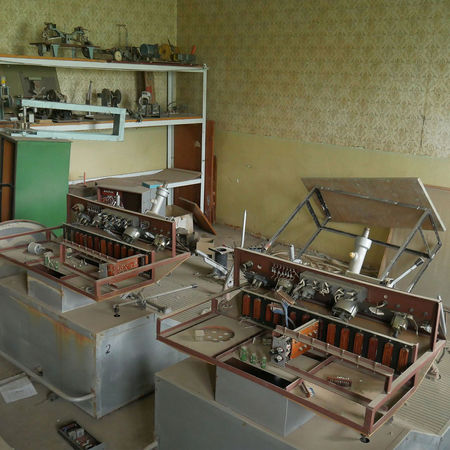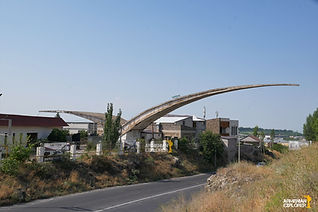
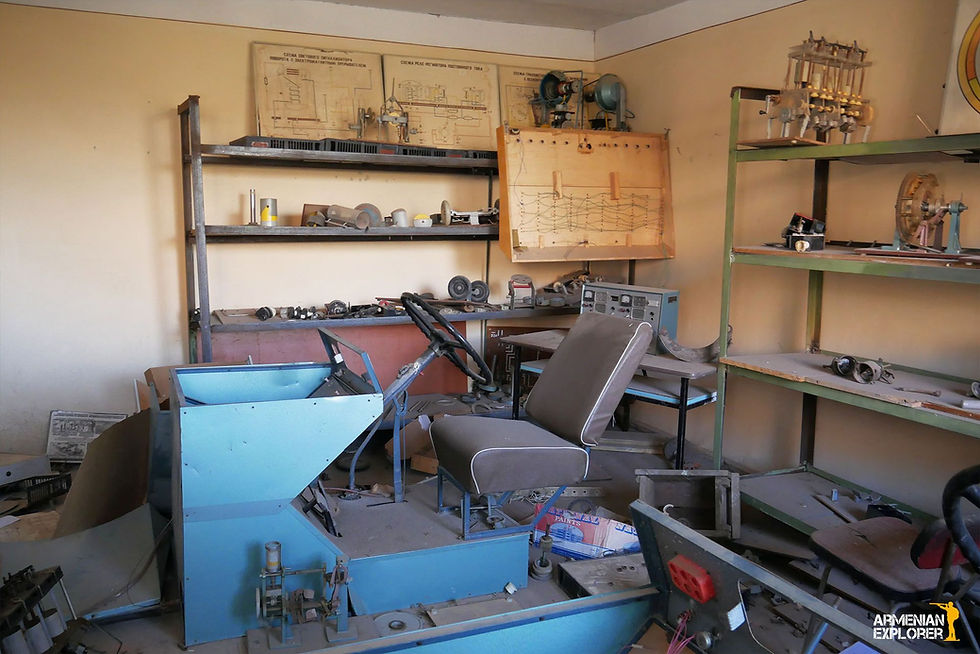
Exploring a Soviet-era abandoned driving school in Armenia
We stepped inside and found ourselves in a remarkably well-preserved Soviet driving school. The interior felt like a time capsule—walls lined with posters on mechanization, civil defense, traffic regulations, and even diagrams of various firearm mechanisms. Scale models and early driving simulators sat quietly, untouched for decades, telling the story of an era when driving education went far beyond simply learning to operate a vehicle. This article sheds light on this fascinating place, offering a glimpse into a unique piece of Soviet history.
Soviet driving schools, especially those operating under DOSAAF (Volunteer Society for Cooperation with the Army, Aviation, and Fleet), were far more than simple institutions where one learned to operate a vehicle. They were an integral part of the USSR's system for preparing skilled personnel for both civilian life and the military.

This place was full of posters! I photographed as many as I could, though I won’t publish them all here. In the future, I plan to dedicate a separate article to the posters I’ve seen during my urban explorations.
DOSAAF was officially established in 1951, uniting several pre-existing organizations such as DOSARM, DOSAV, and DOSFLOT. Its roots, however, went back even earlier to OSOAVIAKHIM, a 1920s organization dedicated to training technical specialists, including drivers, mechanics, radio operators, and even pilots. The idea was to equip the Soviet Union with a steady flow of people ready to serve both the economy and national defense.
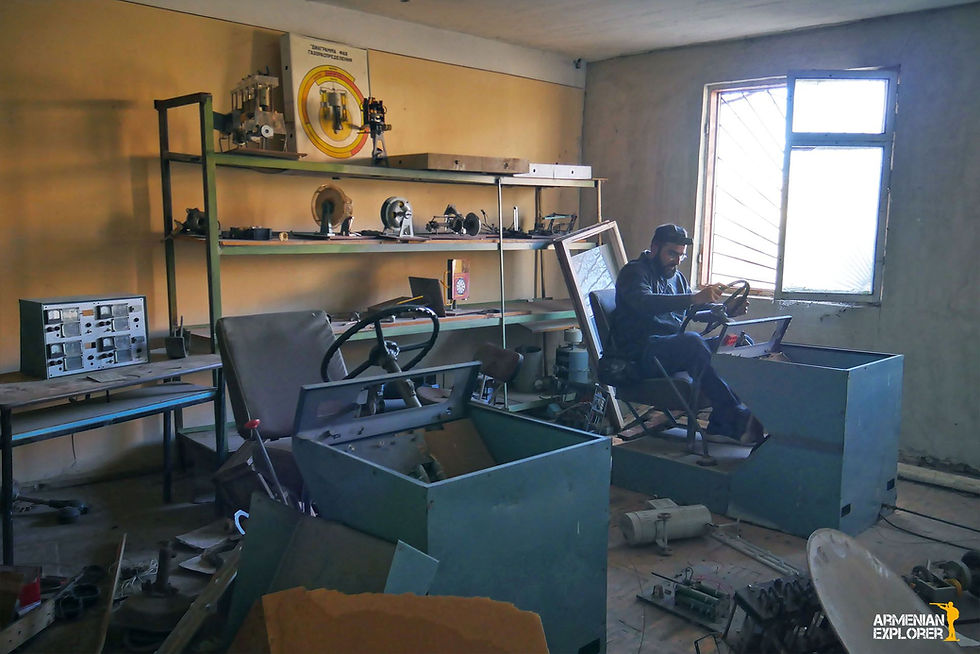
These simulators blew my mind! I took a seat to get some driving lessons
A Higher Standard of Training
DOSAAF driving schools stood out for their high level of instruction. Graduates weren’t just drivers—they understood vehicle mechanics, basic repairs, and safe operation in challenging conditions. Many courses had a military touch, preparing participants to drive heavy trucks or army vehicles if needed.
Training usually lasted around six months, combining theory and practical lessons in an intensive schedule. Lessons often included:
Detailed knowledge of vehicle construction
Maintenance and troubleshooting skills
Driving in difficult terrain and weather
Discipline and responsibility expected of future military drivers
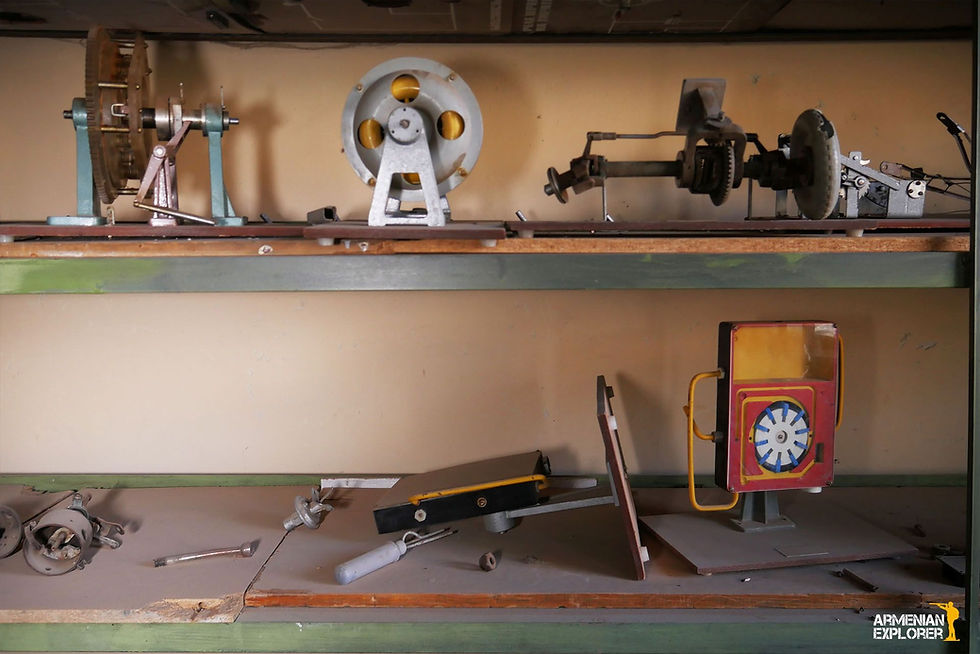
The shelves were filled with scale models of various mechanical devices
More Than Driving Lessons
DOSAAF schools were also about patriotism and discipline. They instilled a sense of duty to the nation, making driving part of a broader preparation for service. The skills learned ensured graduates could work in the civilian sector—transportation, logistics, industry—or be called upon by the army when required.
For many young Soviets, getting a license from DOSAAF was considered prestigious. It meant you were not just a driver but a qualified, reliable professional, ready to serve wherever the country needed you.
I’m Suren, a professional urban explorer in Armenia. I offer unique urbex tours to abandoned, hidden, and off-the-map places you won’t find in guidebooks. Want a custom itinerary? Contact me on WhatsApp or Telegram.
Project Gallery
